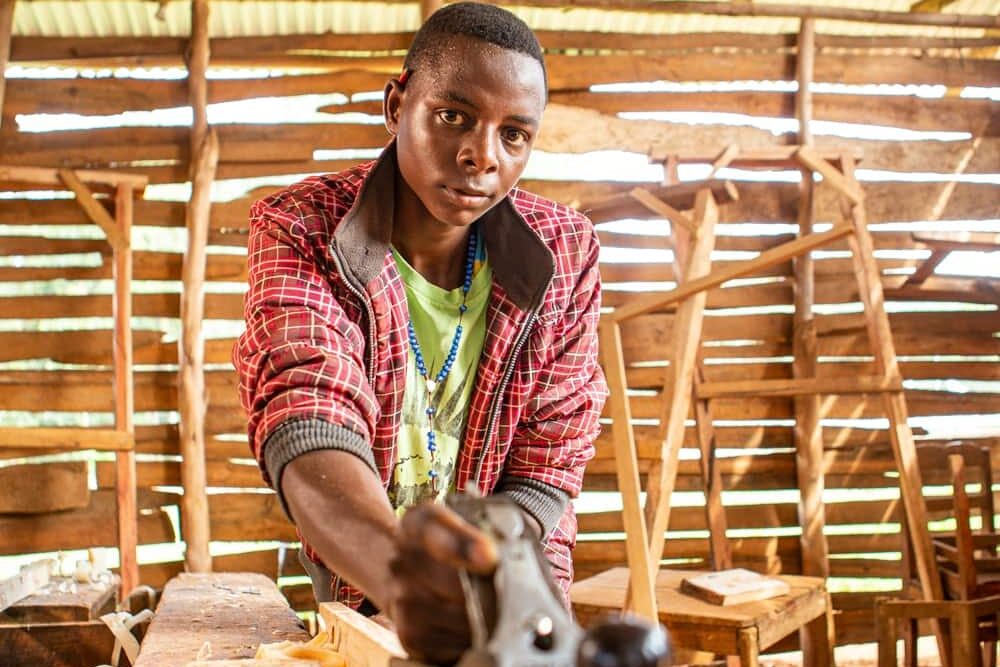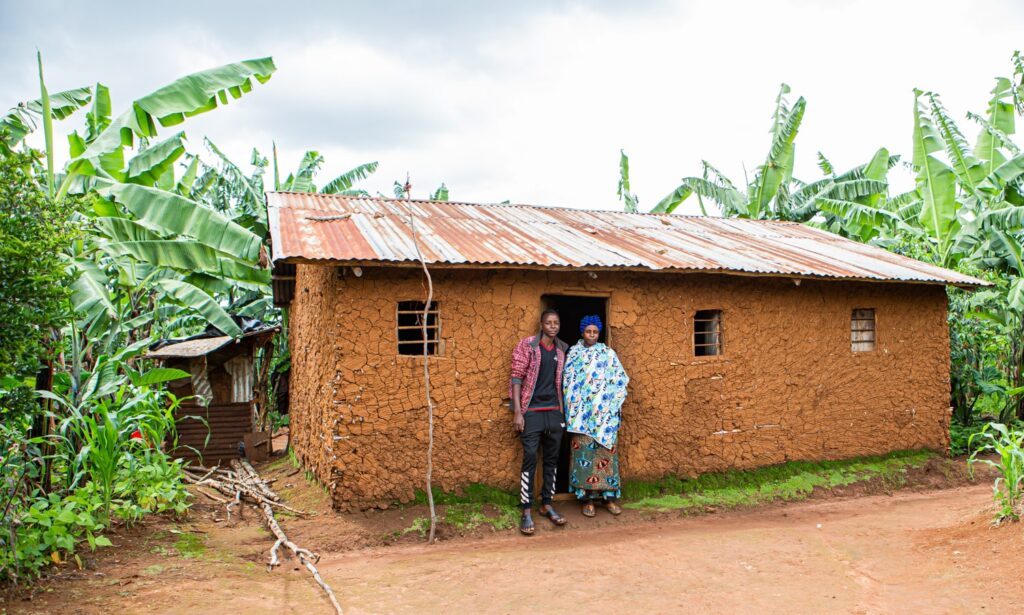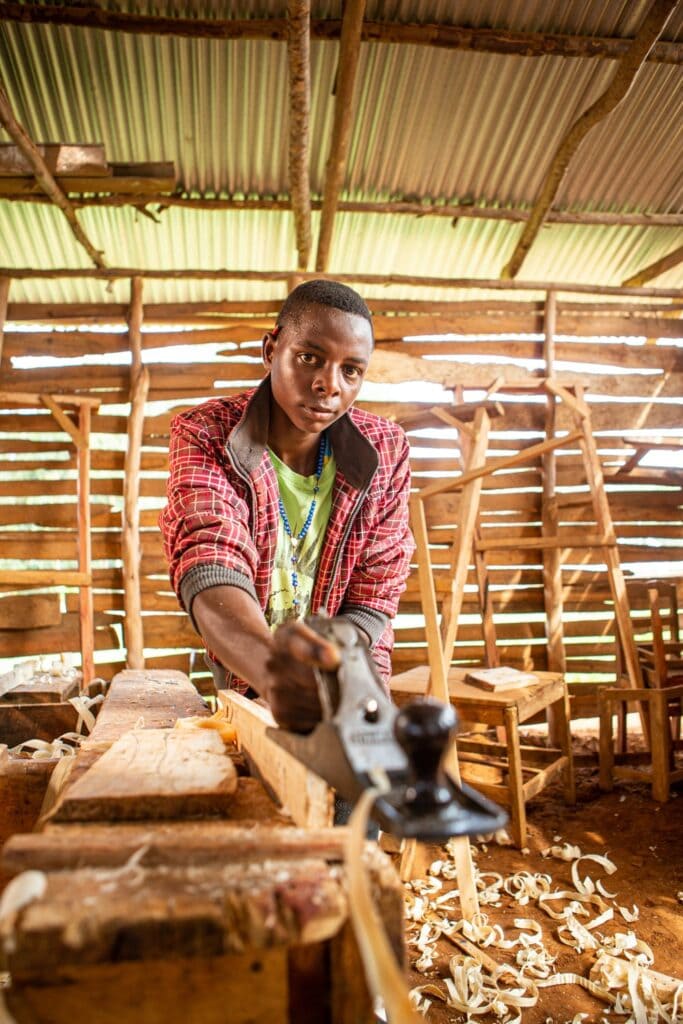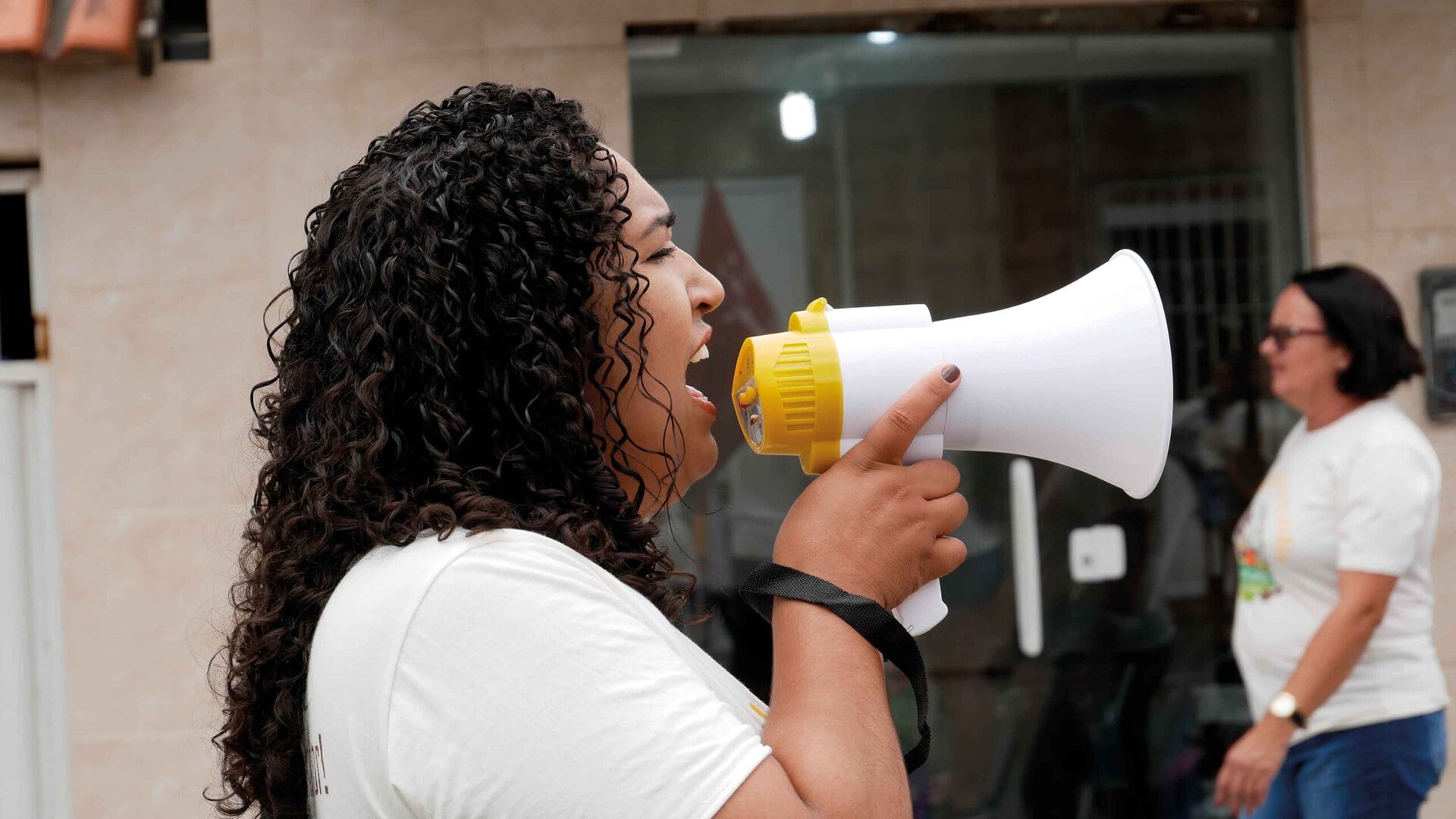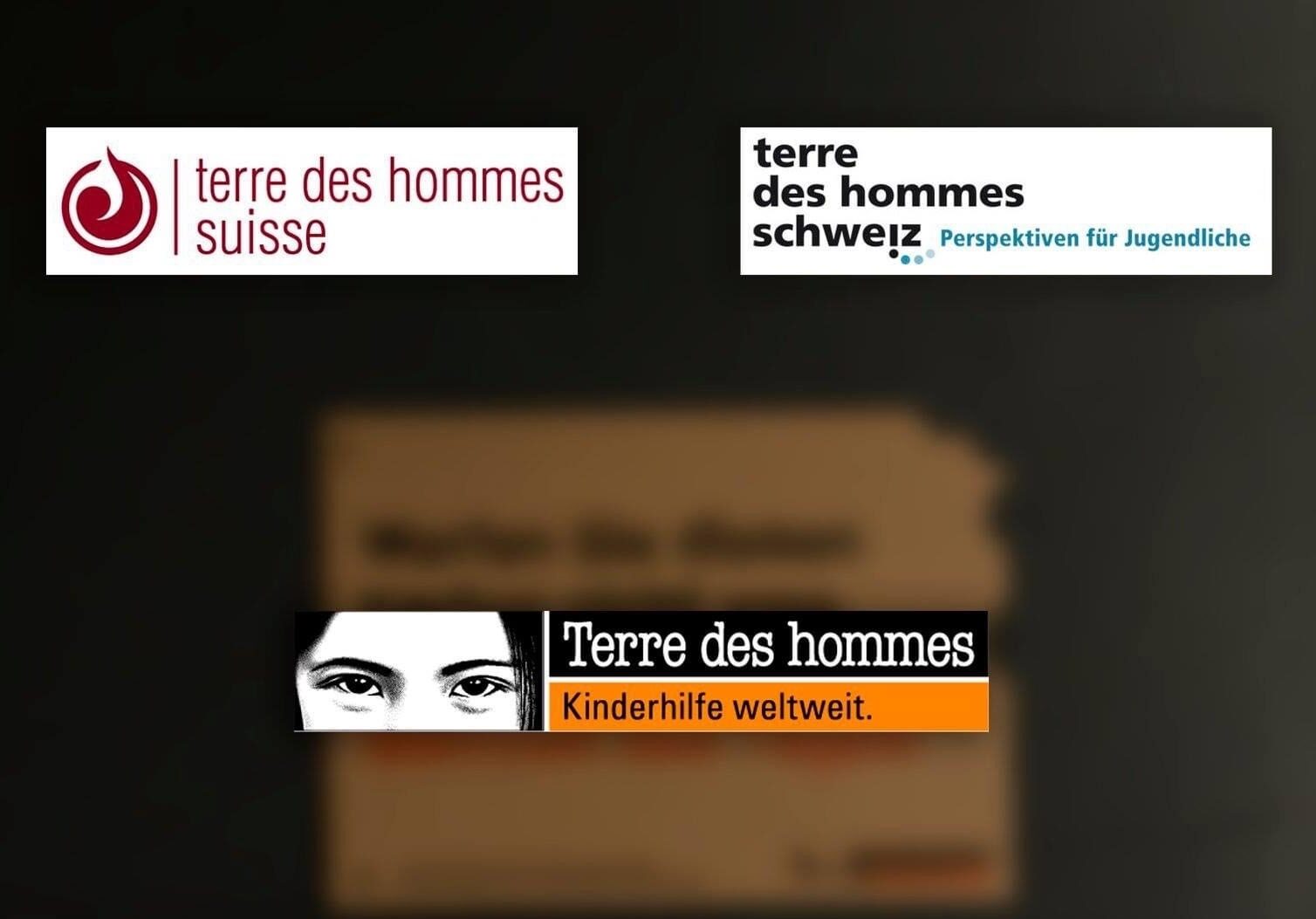On Youth Day, we want to celebrate the achievements of the many young people who give their all despite their precarious situation. Young people have a great influence on their environment. In rural Tanzania, many young orphans or half-orphans have to work to support their families. As admirable as their achievements are, they miss out on time at school and thus jeopardize the prospect of a job. This was also the case for Mberwa Nyoni until he completed a carpentry course with our partner organization. Now he and his family have prospects for the future.
Mberwa is sweating. The plane skitters over the uneven wood and only catches a few chips. The 19-year-old presses harder. A ribbon of wafer-thin wood shoots out of the plane and falls to the earthy floor.
We are in the workshop of Humuliza, our partner organization in Tanzania. Today, ten boys are working on their chair or table legs in the morning sunlight that filters through the cracks in the wooden wall. Finished furniture from the carpentry course is piled up in one corner. The young people are visibly proud of their skills. During their training, the young carpenters also learn how to sell the furniture at a profit. In this way, the young people also generate income for their families during their training.
All course participants live in difficult conditions. HIV/Aids robs many children and young people in Tanzania of their parents. Here in the small village of Nshamba, far from the nearest paved road, there are no state social safety nets. Here, the single parent or the eldest sibling takes responsibility when one or both parents die.(Read the story of Aronia here)
Too little for the school fees
His mother does not want to explain why Mberwa and his three brothers are growing up without a father. Just this much: “When he left, the house was in a bad state. We had to repair it ourselves.” The simple mud house is surrounded by large-leaved perennials and half-height crops. The family grows whatever grows, feeds them or brings in money – bananas and peanuts, for example. But that’s not enough to pay the school fees. “Humuliza has helped us a lot. The organization has paid the school fees. We are very grateful for that,” says Mberwa’s mother.
Mberwa’s involvement in the carpentry course has helped the family to generate additional sources of income. He leads us behind the house. A few pots stand over glowing coals, lunch is simmering quietly. Mberwa disappears into the green undergrowth between two enclosures made of rough wood and picks up a few palm leaves. A snout stretches out of the enclosure greedily for the leaves.
Into the future with furniture and animals
“We were able to buy some young animals with the money I earned from selling furniture.” Mberwa holds out a few leaves to the goat. “We raise the animals and can then sell them at the market for a profit.” Mberwa built all the enclosures himself – including those for the chickens and the pig. “At Humuliza, I learned how to plan and draw up budgets. What I learned is now helping me with our animal project.” “Actually, the knowledge has helped the whole family,” adds his mother, “we all sat down together to plan for the future.”
However, running a farm is nothing more than a good source of extra income for Mberwa. Mberwa has other plans for his future. “I want to set up my own carpentry business one day and employ young people – so that they can support their families too,” he says. “Many people here don’t know what to do with themselves. The carpentry trade has given me prospects for the future, and I want to pass that on.” Mberwa is working towards this – step by step, with furniture and animals.
More trust and confidence
Growing up in poverty and with only one parent is often associated with stigma in rural Tanzania. Young people like Mberwa feel this every day – their self-confidence suffers as a result. Hardly any young person in this situation would believe in starting their own business.
“At Humuliza, we also learned life skills. I now have more confidence in my abilities and more confidence in the future. I have the confidence to speak up in a group and know how to deal with stress,” says Mberwa. “He is now also much more self-reliant and determined than before,” notes his mother.
This gives Mberwa what he needs for his future: self-confidence, craftsmanship and – most importantly – a real perspective.
Samuel Rink
